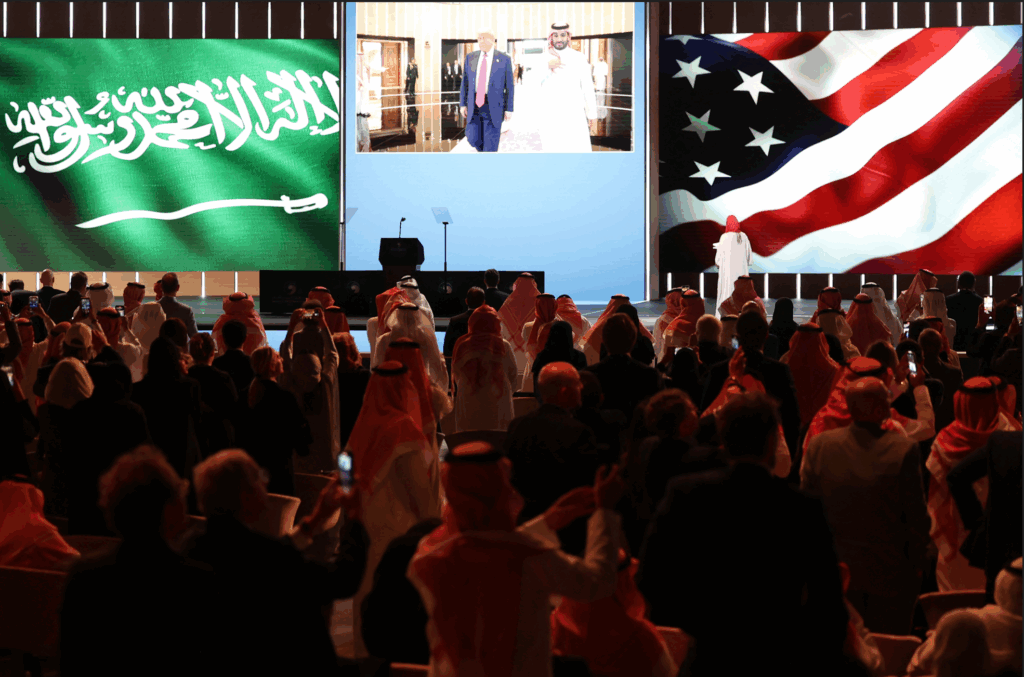
- 29 Apr 2021
The China-Iran Deal: Mirage or Game Changer?
(This event is jointly organised by MEI Political Economy and Diffusion of Ideas-Gulf research clusters.)
Abstract
Is the hype surrounding the recently concluded US$400 billion China-Iran deal justified? Comprehensive Strategic Partnerships (CSPs) top the totem pole when it comes to China’s bilateral relationships, but it has such deals with other Gulf countries, too. Is the timing of the deal, which coincides with JCPOA negotiations, significant? Is Iran leveraging its relations with Beijing to force Washington’s hand? Will it significantly alter the balance of power in the region? The Middle East Institute will be hosting a panel of experts to tackle these and other questions.
This public talk will be conducted online via Zoom on Thursday, 29 April 2021, from 5.00pm to 6.30pm (SGT). All are welcome to participate. This event is free, however, registration is compulsory. Successful registrants will receive a confirmation email with the Zoom details closer to the date of the event.
Image caption: Iranian Foreign Minister Mohammad Javad Zarif and his Chinese counterpart Wang Yi, pose for a picture after signing an agreement in the capital Tehran, on 27 March 2021. (Photo by – / AFP)
Listen to the full event here:
Watch the full event here:
Read the Summary of Event Proceedings:
By Ilyas Salim
Research Assistant, Middle East Institute, National University of Singapore
Dr Jeremy Garlick
Associate Professor, Prague University of Economics and Business and Director, Jan Masaryk Centre of International Studies
Dr Jeremy Garlick argued that the US$400 billion Iran–China deal was more of a mirage than a gamechanger in the Middle East and said that Beijing’s approach to the region was rooted in its economic diplomacy. He noted that according to statistics, China’s investments in Iran since 2016 have generally been smaller than expected. As such, he suggests that this is due to China’s regional approach of strategic hedging, which he defined as a mitigation of risk through diversification of strategic investments and interests.
While China looks to boost its relations with Iran, it must do so without alienating Iran’s rival Saudi Arabia. China has comprehensive strategic partnerships with both Iran and Saudi who are significant exporters of oil to China. Both states, being key export partners, are also crucial to China’s Belt and Road Initiative. Iran and Saudi Arabia remain of roughly equal importance to Beijing and China’s commitment to the former will continue to be tempered by the need to also maintain good diplomatic relations with the latter.
The Middle East continues to present several challenges to China, particularly because of the instability in the region. Seeing economic and security issues as intertwined, Beijing aims to increase geo-economic and geopolitical influence, as well its national security, through its Belt and Road Initiative. Maintaining good relations with both Saudi and Iran will be crucial to mitigate instability and minimise conflict of interest with the US — another key player in the region.
Dr Zakiyeh Yazdanshenas
Research Fellow, Center for Middle East Strategic Studies, Tehran
Dr Zakiyeh Yazdanshenas examined the different perspectives regarding the comprehensive strategic partnership between Iran and China. Notably, Iranian public opinion tends to be generally sceptical of the Iran–China deal due to a poor understanding of Chinese policy behaviour and a popular distrust of the Iranian government.
Public opinion aside, there is something of a consensus among Iranian political elites and academics on the importance of a strategic relationship between Iran and China. However, Dr Yazdanshenas noted that despite this outward consensus, there are in fact, multiple divergent viewpoints among Iranian elites regarding the place of Iran and China within the global geopolitical order.
The ‘principalist’ faction, which also includes conservatives and neoconservatives, is marked by its distrust for the West and especially the US, due to Iran’s experiences with crippling economic sanctions and the US withdrawal from the Joint Comprehensive Plan of Action (JCPOA) nuclear deal. Principalists regard the US as a fading power and advocate closer ties with an increasingly active China as an external balancer to the US in the Middle East. Their viewpoint dominates Iranian security institutions and foreign policy discourse and is likely to be prevalent in the next Iranian administration.
A second viewpoint emphasises equal and co-operative relations between Iran and all major powers, including the US, Russia and China. This mindset is prevalent among officials of the Rouhani administration and especially the foreign ministry, who advocate active multilateral engagement as opposed to the principalists’ strategy of strategic balancing.
Finally, a third faction comprising mainly of academics believes that resolving Iran’s issues with the US should take highest priority, as it would then lead to a de-escalation of disputes between Iran and other regional powers. In this view, the current Iran–China deal should be flouted as a bargaining chip to appease Western powers in negotiations between Iran and the West.
Dr Jin Liangxiang
Senior Research Fellow, Center for West Asian and African Studies, Institute for International Strategic Studies, and Shanghai Institutes for International Studies
Dr Jin Liangxiang discussed Beijing’s and Tehran’s fundamental and strategic perspectives of each other, especially within the current geopolitical context.
China regards diplomacy towards developing countries as a foundation in its overall foreign policy and Beijing views Iran as a critical member of the developing world. Iran is one of five Middle East countries with which China shares comprehensive strategic partnerships with and it is a key part of China’s Belt and Road Initiative. China and Iran are also alike in being heir to major historical civilisations and today, there is much talk in both countries about civilisational rejuvenation. On its part, Iran regards China as a major economic and trading partner, as well as a vital counterbalance to the US in political and strategic terms.
Dr Liangxiang also discussed aspects of Iran–China relations within the current geopolitical climate. He said that within the context of escalating tensions between China and the US, the developing world — of which Iran is a part — is becoming increasingly important to Chinese foreign policy. In its dealings with Iran, China does not pay much heed to US concerns as it regards Sino-Iranian engagement legitimate and beneficial for the geopolitical order. Dr Liangxiang said that both China and Iran see themselves as victims of unreasonable US pressure policies, which have continued even under the Biden administration. He also noted that the China–Iran deal is likely to have little impact on the ongoing nuclear agreement negotiations between the US and Iran. .
Dr Fatemeh Aman
Non-resident Senior Fellow, Middle East Institute, Washington
Addressing the China–Iran deal, Dr Fatemah Aman, noted that many details of the agreement — including specific contracts and objectives — remain unknown, making it difficult to assess its economic impact. She said that the deal generated fierce domestic discussion within Iran — proponents believe that the deal would help Iran overcome US sanctions and enhance its position in the Middle East, while critics argued that the deal would result in an unhealthy expansion of Chinese political and economic influence over Iran.
Concurring with the other speakers, Dr Aman said that China’s strategy for expanding its influence in the MENA region goes beyond Iran, with Beijing often focusing on establishing economic relationships with other countries considered hostile by Tehran. For example, despite the severity of the Covid-19 pandemic in Iran, China has instead opted to collaborate with the UAE in medical diagnostics services and joint vaccine production. China also signed a number of agreements with Saudi Arabia, including a $10 billion investment in a petrochemical complex and oil refinery in the kingdom.
Dr Aman also said that while China has displayed an extraordinary talent for balancing its relationships with the competing states within the Middle East and avoiding major entanglements in the region’s conflicts, it has done so as a free rider leveraging on the political order created by the US hegemony. As such, the gradual disengagement of the US from the region might force China into taking on the more complicated task of actively mediating between its regional partners. With regard to the China–Iran deal, for instance, Beijing may be moved to expand its economic ties with other countries to match its newly-established agreement with Tehran.
Highlights from the Q&A Session
A key aspect of the discussion centred around the implications of China and Iran’s increasing engagement on the ongoing international negotiations regarding the revival of the JCPOA nuclear deal, as well as on the general geopolitical order.
Both Dr Liangxiang and Dr Galick agreed that China is not interested in taking sides in regional conflicts and prefers to cultivate relations with all partners at the same time through a hedging or balancing strategy. In this light, the US withdrawal in fact, creates certain problems for China which is uninterested in stepping into the shoes of an active regional hegemon.
Addressing the question of whether or not China would prefer the JCPOA to be reinstated, Dr Aman said that China’s engagement with Iran is now perhaps at a point of no return and that the China–Iran deal would continue regardless of the outcome of the nuclear negotiations. She noted, however, that the JCPOA had much potential to contribute to stabilisation within the region, which is a key goal of Chinese foreign policy.
When asked about the sentiment of JCPOA negotiations from within Iran’s domestic landscape, Dr Yazdanshenas said that while the Rouhani administration is determined to revive the nuclear deal, the principalist faction continues to oppose the deal and believes that the next Iranian administration will veer away from Western powers and choose greater engagement with Beijing. She also said that the JCPOA would be a major step in easing the concerns of Iran’s Arab neighbours in the Gulf and encourage the establishment of a security mechanism framework to clarify issues and increase regional stability.
About the Speakers

Senior Research Fellow
Shanghai Institute for International Studies
Zakiyeh Yazdanshenas
Research Fellow
Center for Middle East Strategic Studies, Tehran
Fatemeh Aman
Non-Resident Senior Fellow
Middle East Institute
Washington DC
Jeremy Garlick
Associate Professor
Prague University of Economics and Business
Dr Jin Liangxiang is a Senior Research Fellow at the Center for West Asian and African Studies and Institute for International Strategic Studies, Shanghai Institutes for International Studies (SIIS).
He is specialised in the Middle Eastern international relations and is particularly engaged in the field of Iran’s foreign policy and domestic politics. He has also conducted some research on international relations on China’s neighboring areas.
He has been a frequent visitor of numerous influential academic institutions and conferences. He was a visiting fellow of the Truman Institute for the Advancement of Peace (2002-2003), Fredrich Ebert Stiftung New York Office (2006), the Baker Institute (2011) and the Center for Strategic and International Studies (CSIS) in the US (2013).
He is the author of the book On the Domestic Sources of Iran’s Foreign Policy (2015) and has written more than 50 academic papers on Middle Eastern studies, most of which are about Iran. He is also a frequent writer, in English, for www.china.org.cn and China-US Focus.

Dr Zakiyeh Yazdanshenas is a research fellow at the Center for Middle East Strategic Studies in Tehran. She holds a PhD in Regional Studies from the University of Tehran, and her expertise lies in great power rivalries in the Middle East. She is equally a freelance journalist with contributions to Iranian media, Al-Monitor and Foreign Policy, among other media outlets. Her book project entitled “China’s Rise and Changes in the US Strategy” is contracted with the University of Tehran Press.

Fatemeh Aman is a non-resident senior fellow at the Middle East Institute. She has written on Iranian, Afghan, and broader Middle Eastern affairs for over 20 years. She has worked and published as a journalist, analyst, and previously as an Atlantic Council non-resident senior fellow. Her writings have appeared in numerous publications including Jane’s Islamic Affairs Analyst, Jane’s Intelligence Review, and publications of Atlantic Council and the Middle East Institute. Fatemeh has advised the US government and nongovernmental organizations on Iranian regional policies. She is the author of the Atlantic Council’s “Water Dispute Escalating between Iran and Afghanistan” and co-author of “Resolving Regional Sources of Instability” issue briefs. Fatemeh was a TV writer, producer, and anchor at Voice of America (VOA), and prior to that a correspondent with Radio Free Europe/Radio Liberty since 1999.

Dr Jeremy Garlick is an Associate Professor at the Prague University of Economics and Business and Director of the Jan Masaryk Centre of International Studies within the same university. He specialises in China’s international relations, focusing primarily on the progress and regional implementation of the Belt and Road Initiative (BRI). His first book, The Impact of China’s Belt and Road Initiative: From Asia to Europe, was published by Routledge in 2020.
In addition to publications on EU-China relations, he has also written numerous BRI-related articles, including papers on the China–Pakistan Economic Corridor (CPEC), China’s economic diplomacy in the Czech Republic, China’s strategic hedging in the Persian Gulf, China’s normative power drive in Central Asia and China’s relations with India. Furthermore, Dr Garlick has taught and lectured for 20 years at institutes of higher education in Asia and Europe.



